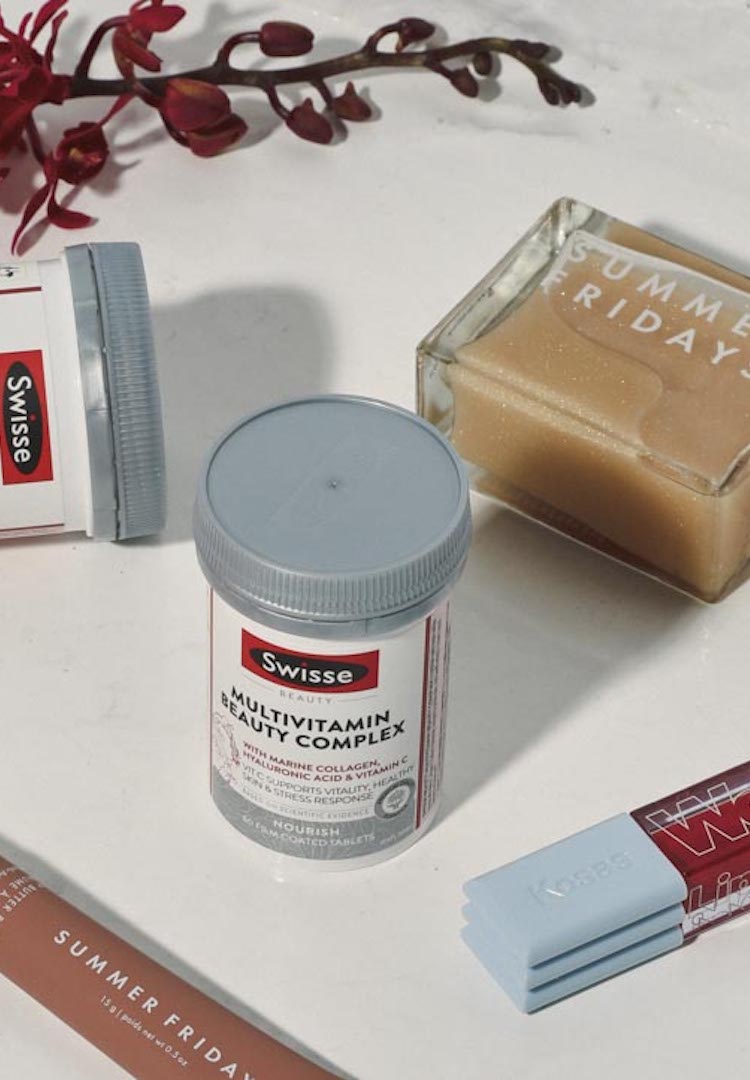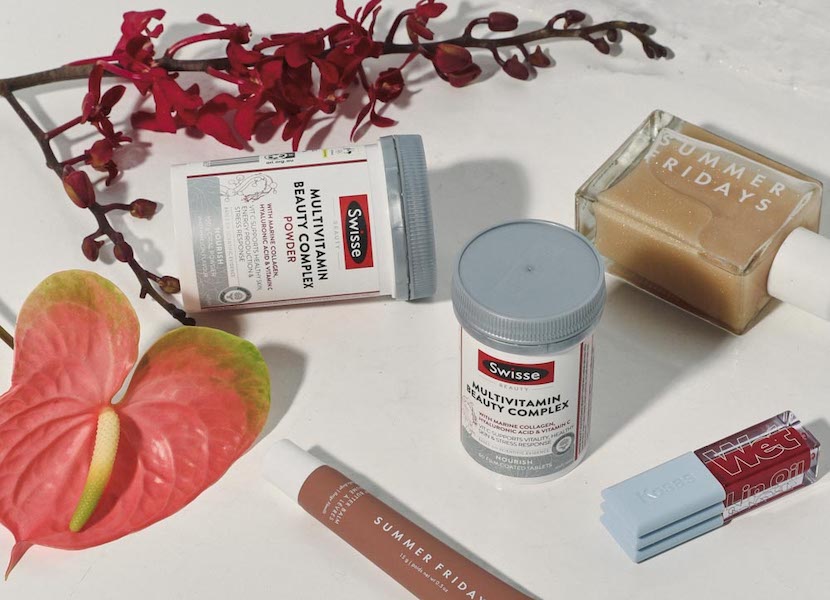How supplements can work alongside skincare to help you reach your skin goals
IN PARTNERSHIP WITH SWISSE WELLNESS PTY LTD.
PHOTOGRAPHY BY MEGAN ANN COLLANTE
STYLING BY JAM BAYLON
WORDS BY KATE STREADER
A lowdown on your favourite skincare ingredients.
We all know skincare goes beyond what products we slather on our face – getting enough sleep and drinking plenty of water is at the top of the list when it comes to achieving a healthy complexion. But what role do supplements play for our skin?
For more wellness advice, head on over to our Health section.
Swisse Beauty, an Australian wellness and beauty brand, recently expanded its beauty offering with a Multivitamin Beauty Complex, a multivitamin that claims to “provide beauty support from within”. Curious to find out just how effective these types of products are and if they can really improve your skin, I dived into the world of beauty supplements to see how specific ingredients differ when ingested and when applied topically.
Collagen peptides
Collagen has a massive part to play in providing structure and support to various tissues in the body. Commonly, we see collagen’s effect on the skin – the more collagen we have, the more hydration and elasticity we typically see. As we age, our collagen production slows down, contributing to the formation of wrinkles and dry skin.
To mimic the function of collagen, we can add dosages of collagen peptides to our skin and diet. These collagen-stimulating peptides, when applied topically, can be used to trigger the body into producing collagen and have been found to show a reduction in wrinkles and an increase in skin elasticity.
When taken orally, it can be absorbed by the body with the potential of benefiting skin health. A 2018 study found this practice can help increase skin hydration, firmness and elasticity.
Vitamin C (also known as ascorbic acid)
Vitamin C has impressive name recognition; oranges and vitamin C are bonded in people’s minds and both are commonly reached for when it’s cold and flu season. When it’s in its skincare form, vitamin C is an effective antioxidant. It can be useful in assisting in the prevention of collagen degradation caused by UV radiation, as well as increasing moisture and decreasing the appearance of pigmentation.
When ingested, vitamin C can help stabilise collagen molecules, essentially stimulating their production. It also provides photoprotection against UVA and UVB rays – which is another good reason to keep vitamin C in your routine.
Niacinamide (also known as nicotinamide and vitamin B3)
A favourite in the skincare world, niacinamide is a powerful ingredient loved for its multifunctional effects. Its lesser-known name is simply vitamin B3. As a topical ingredient, niacinamide is an antioxidant that can assist in improving skin hydration, increasing the synthesis of ceramides (which in turn improves the skin barrier), and in the reduction of inflammation, redness and hyperpigmentation.
For those who take vitamin B3 orally, it can help in preventing the depletion of cellular energy, which can be seen in processes like DNA repair.
Retinol (also known as vitamin A)
It’s been heralded as an ‘anti-ageing’ champion but the strengths of retinol aren’t just limited to skincare. The benefits of retinol when applied topically are that it promotes cell turnover which means skin cells shed faster, revealing younger cells.
Some research has shown retinol stimulates collagen synthesis and improves skin elasticity. Vitamin A can also be taken orally and has been found to potentially have an impact on healing wounds, as well as decreasing inflammation.
Holistic health and wellness shouldn’t stop at what you’re putting on top of your skin. Why not try and see how the star ingredients in your skincare routine could work in your diet?
Find Swisse Beauty’s Multivitamin Beauty Complex here.













